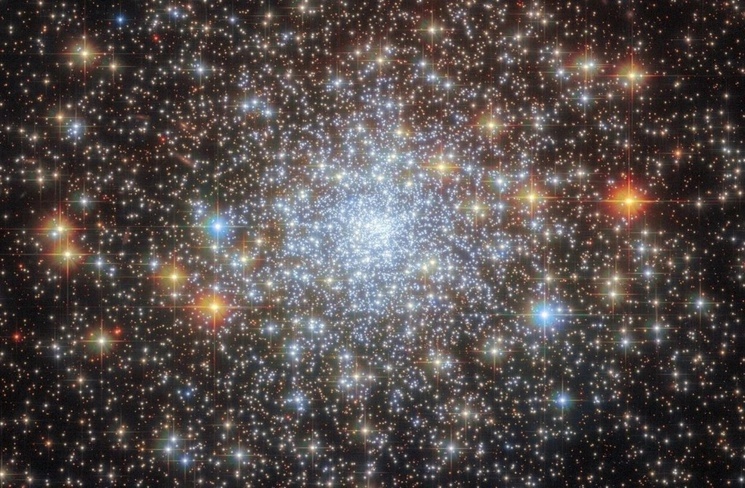Paris. The expansion of the Universe continues, according to the first results of international astronomical research that, however, suggests that the phenomenon could be slowing down.
Installed on a telescope at the Kitt Peak Observatory in the United States, the Dark Energy Spectroscopic Instrument (DESI) is equipped with a true fly’s eye.
It contains 5,000 fine robotic optical fibers, each of which observes a galaxy for 20 minutes, which makes it possible to later calculate, with a spectrograph, its distance, and therefore, the age of the Universe when it emitted its light.
“We have measured the position of galaxies in space and also in time, since the further away they are, the further we go back in time, towards an increasingly younger Universe,” explains Arnaud de Mattia, from the Atomic Energy Commission ( CEA) French, who co-leads the cosmological data interpretation group.
After one year, DESI, a collaborative project with 70 international institutions led by the Berkeley Laboratory in the United States, has already mapped six million light sources, galaxies and quasars, representing the last 11 billion years of history. of the universe.
Two conferences, in Switzerland and the United States, announced these first results this Thursday, before a series of scientific articles in the Journal of Cosmology and Astroparticle Physics.
The main mission of DESI is to help understand the nature of dark energy, an element as theoretical as it is mysterious, supposedly responsible for the acceleration of the expansion of the Universe.
More specifically, this dark energy would be the force that increases the distance between galaxy clusters, as if the space that separates them did not stop expanding.
Dark energy is winning
In the standard cosmological model, the observable Universe is composed of 5 percent baryonic – that is, ordinary – matter, 25 percent hypothetical cold dark matter and 70 percent dark energy.
It has been known for a century that it has been expanding since its origins 13.8 billion years ago. And it was more recently discovered that this expansion accelerated significantly about 6 billion years ago after the Big Bang.
While the two matters, baryonic and dark, slow down this expansion, dark energy accelerates it.
And clearly dark energy has the advantage, according to this model called Lambda-CDM, Lambda being the cosmological constant related to dark energy.
“So far we see that the data match our best model of the Universe, but we also see some potentially interesting differences, which could indicate that this dark energy has evolved over time,” said Michael Levi, director of the international DESI project, quoted in a statement from the Berkeley Laboratory of the United States Department of Energy.
In other words, “DESI data seem to show that the cosmological constant Lambda would not really be a constant”, since dark energy would have a “dynamic behavior” depending on the epochs considered, recalls Arnaud de Mattia.
With the consequence that the acceleration of the expansion would have been “more important in the past, after 6 billion years, to then decrease in recent times”, adds Christophe Yèche, physicist at the CEA.
The scenario of a dark energy oscillation over time still needs to be confirmed with more data from DESI and other instruments.
But if this slowdown were confirmed, then we would have to rethink the idea of the Universe based on this erratic behavior of the dark energy constant.
For example, replacing the cosmological constant with a force field related to a particle, yet to be identified.
Or modifying the equations of general relativity, “so that they behave slightly differently at the scale of large structures,” according to de Mattia.
It has not come to that, because as the researcher recalls, the history of science shows cases “where we have seen deviations of this type that have been resolved over time.”
After all, more than a hundred years after its creation, the theory of general relativity still works perfectly.
#universe #continues #expand #slowing
– 2024-04-21 08:34:46
